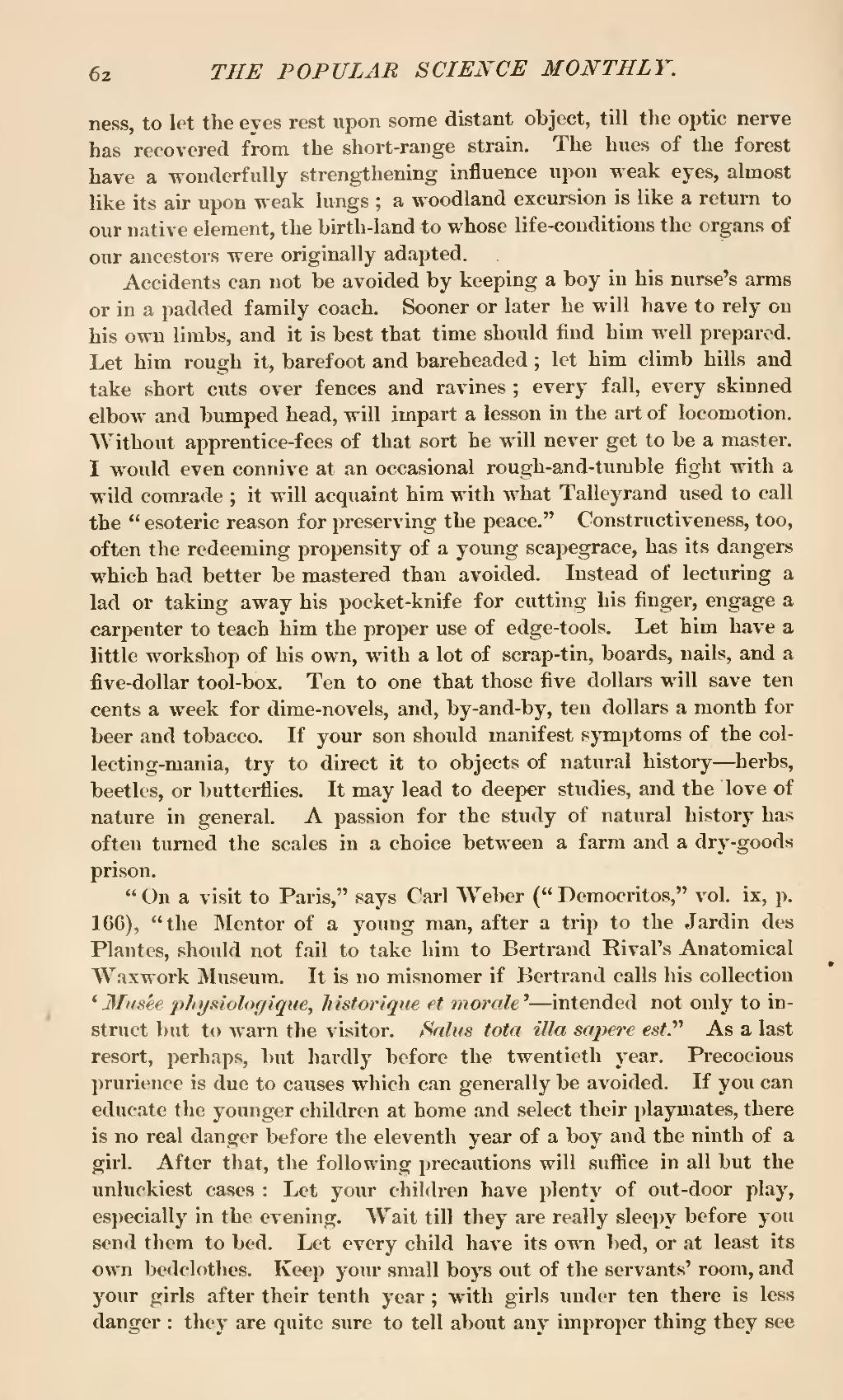ness, to let the eyes rest upon some distant object, till the optic nerve has recovered from the short-range strain. The hues of the forest have a wonderfully strengthening influence upon weak eyes, almost like its air upon weak lungs; a woodland excursion is like a return to our native element, the birth-land to whose life-conditions the organs of our ancestors were originally adapted.
Accidents can not be avoided by keeping a boy in his nurse's arms or in a padded family coach. Sooner or later he will have to rely ou his own limbs, and it is best that time should find him well prepared. Let him rough it, barefoot and bareheaded; let him climb hills and take short cuts over fences and ravines; every fall, every skinned elbow and bumped head, will impart a lesson in the art of locomotion. Without apprentice-fees of that sort he will never get to be a master. I would even connive at an occasional rough-and-tumble fight with a wild comrade; it will acquaint him with what Talleyrand used to call the "esoteric reason for preserving the peace." Constructiveness, too, often the redeeming propensity of a young scapegrace, has its dangers which had better be mastered than avoided. Instead of lecturing a lad or taking away his pocket-knife for cutting his finger, engage a carpenter to teach him the proper use of edge-tools. Let him have a little workshop of his own, with a lot of scrap-tin, boards, nails, and a five-dollar tool-box. Ten to one that those five dollars will save ten cents a week for dime-novels, and, by-and-by, ten dollars a month for beer and tobacco. If your son should manifest symptoms of the collecting-mania, try to direct it to objects of natural history—herbs, beetles, or butterflies. It may lead to deeper studies, and the love of nature in general. A passion for the study of natural history has often turned the scales in a choice between a farm and a dry-goods prison.
"On a visit to Paris," says Carl Weber ("Democritos," vol. ix, p. 166), "the Mentor of a young man, after a trip to the Jardin des Plantes, should not fail to take him to Bertrand Rival's Anatomical Waxwork Museum. It is no misnomer if Bertrand calls his collection 'Musée physiologique, historique et morale'—intended not only to instruct but to warn the visitor. Salus tota illa sapere est." As a last resort, perhaps, but hardly before the twentieth year. Precocious prurience is due to causes which can generally be avoided. If you can educate the younger children at home and select their playmates, there is no real danger before the eleventh year of a boy and the ninth of a girl. After that, the following precautions will suffice in all but the unluckiest cases: Let your children have plenty of out-door play, especially in the evening. Wait till they are really sleepy before you send them to bed. Let every child have its own bed, or at least its own bedclothes. Keep your small boys out of the servants' room, and your girls after their tenth year; with girls under ten there is less danger: they are quite sure to tell about any improper thing they see

